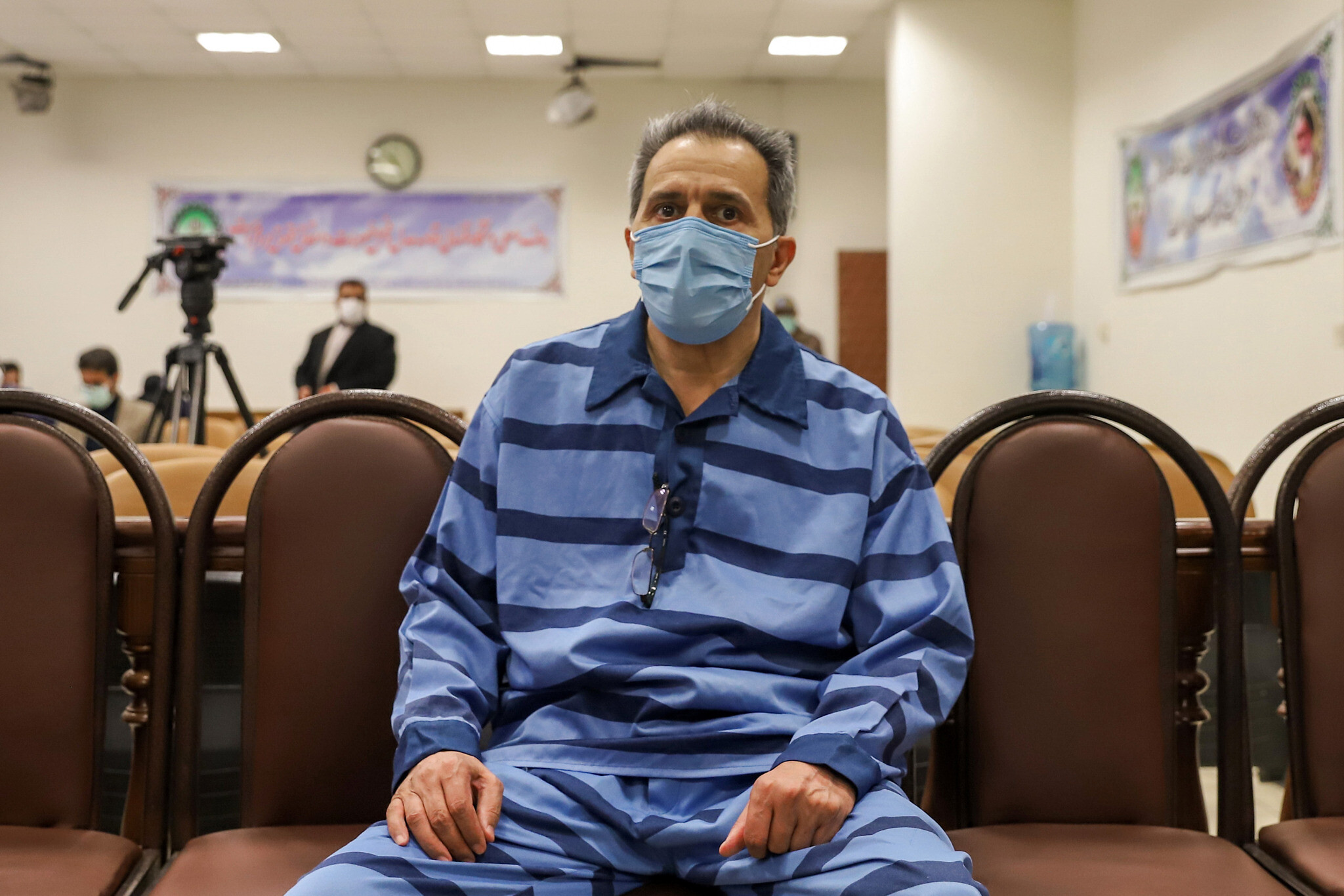



The German government protested to Iran on Tuesday over the execution of Iranian-German prisoner Jamshid Sharmahd and recalled its ambassador to Berlin for consultations.
Germany’s Foreign Ministry wrote on the social network X that Iran’s charge d’affaires in Berlin was summoned to hear “our sharp protest” against Tehran’s action and added that it reserves the right to take “further measures.”
At the same time, German Ambassador Markus Potzel “protested in the strongest terms against the murder of Jamshid Sharmahd” to the Iranian foreign minister, it said. German Foreign Minister Annalena Baerbock then recalled him to Berlin for consultations.
Sharmahd, 69, lived in the US and was kidnapped in Dubai in 2020 by Iranian security forces.
He was put to death in Iran on Monday on terrorism charges, the country’s judiciary said. That followed a 2023 trial that Germany, the US and international rights groups dismissed as a sham.
He was one of several Iranian dissidents abroad in recent years either tricked or kidnapped back to Iran as Tehran began lashing out after the collapse of its 2015 nuclear deal with world powers including Germany.

Tehran accused Sharmahd, who lived in Glendora, California, of planning a 2008 attack on a mosque that killed 14 people — including five women and a child — and wounded over 200 others, as well as plotting other assaults through the little-known Kingdom Assembly of Iran and its Tondar militant wing.
In the United States, Sharmahd helped develop a website for an exiled Iranian opposition group and also hosted radio broadcasts.
Iran also accused Sharmahd of “disclosing classified information” on missile sites of its paramilitary Islamic Revolutionary Guard Corps during a television program in 2017.
Sharmahd had been in Dubai in 2020, trying to travel to India for a business deal involving his software company. He hoped to get a connecting flight despite the coronavirus pandemic disrupting global travel.

Sharmahd’s family received their last message from him on July 28, 2020. It’s unclear how the abduction happened. But tracking data showed that Sharmahd’s mobile phone traveled south from Dubai to the city of Al Ain on July 29, crossing the border into Oman. On July 30, tracking data showed the mobile phone traveled to the Omani port city of Sohar, where the signal stopped.
Two days later, Iran announced it had captured Sharmahd in a “complex operation.” The Intelligence Ministry published a photograph of him blindfolded. He was put on trial in Iran, convicted of “corruption on earth” and sentenced to death.
His family disputed the allegations and worked for years to see him freed.
According to the human rights group Amnesty International, he had been subjected to “enforced disappearance, torture and other ill-treatment” while in prison.
Germany expelled two Iranian diplomats in 2023 over Sharmahd’s death sentence.
